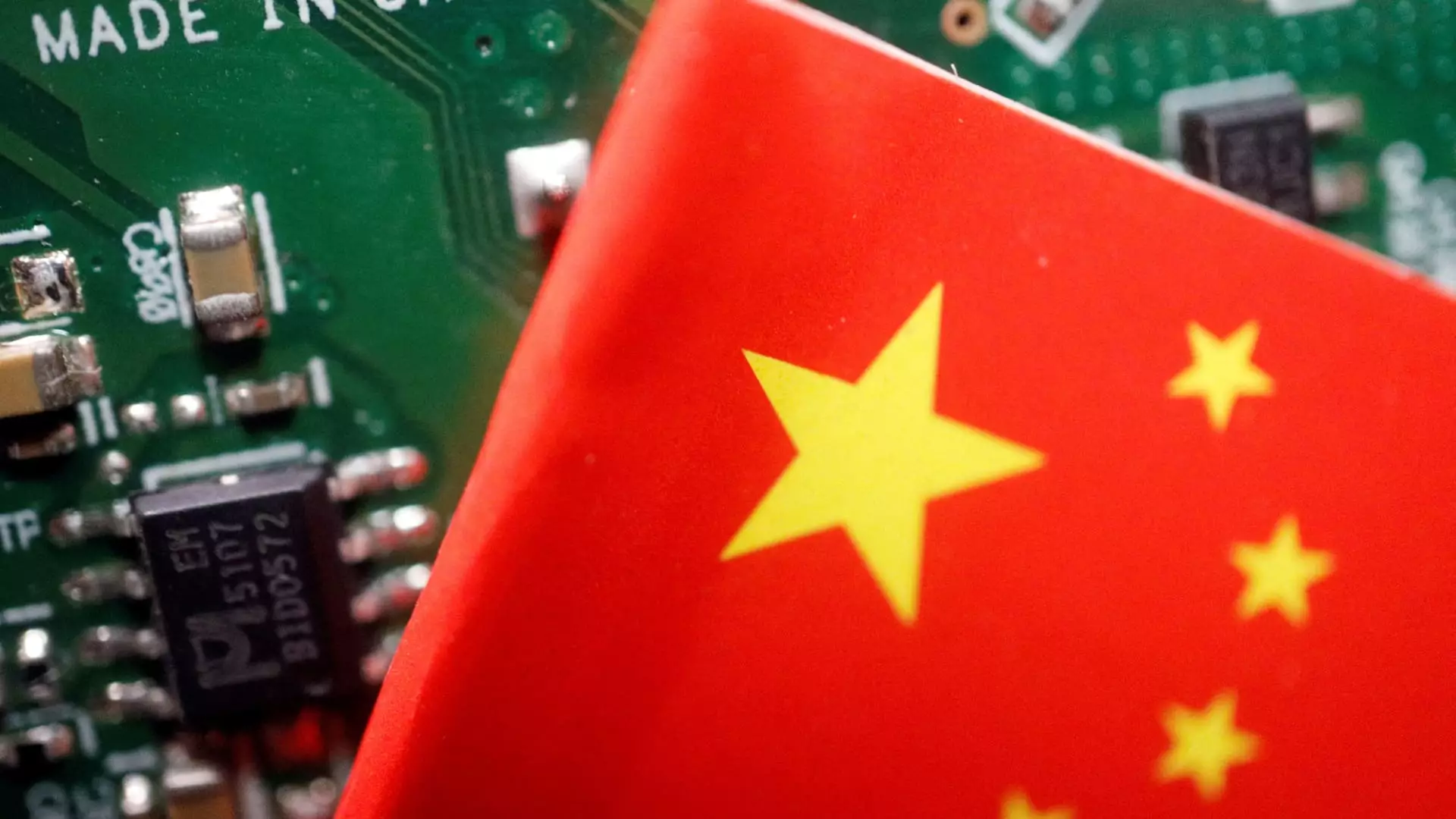The dynamics of the semiconductor market are continually evolving, and recent developments have shed light on the resilience of Asian chip stocks, particularly those outside of China. On a seemingly tumultuous Tuesday, stocks from major manufacturers demonstrated unexpected buoyancy despite the unveiling of fresh U.S. export restrictions aimed at curtailing China’s progress in high-end chip production.
The United States government recently imposed stringent controls on semiconductor exports, focusing on 140 new entities in China, intended to hamper the country’s military and technological advancements. Nevertheless, significant players in Asia, like the Taiwan Semiconductor Manufacturing Company (TSMC), observed a notable uptick in their share prices, with TSMC’s stock rising by 2.4%. This response signals a market sentiment that sees these companies as capable of withstanding external pressures.
Interestingly, Japanese chip-related firms also enjoyed considerable growth, with Tokyo Electron recording a 4.7% increase, while Lasertec surged by 6.7%. This pattern illustrates the divergence in the Asian semiconductor landscape, where companies appear unfazed by geopolitical tensions, largely owing to their established market positions and diversified clientele.
Derrick Irwin, a portfolio manager at Allspring Global Investments, offered insights into the probable consequences of these new U.S. regulations. Although he acknowledged that the restrictions could affect South Korea’s prominent memory manufacturers, SK Hynix and Samsung, Irwin maintained a bullish outlook. He indicated that the anticipated impact on their sales to China was minimal. Instead, he suggested that these companies would likely redirect their products toward markets in the U.S. and elsewhere, minimizing the potential fallout from the U.S. sanctions.
The mixed market reaction highlights not just the resilience of these chip makers, but also their strategic adaptability. Rather than relying solely on the Chinese market, these companies are positioned to leverage their technologies on a global scale, fostering an environment of innovation and competition.
The Biden administration’s latest export curbs have received considerable attention due to their implications for technology sharing and international trade. Among the measures, the inclusion of new controls on manufacturing equipment and software tools emphasizes a broader strategy to inhibit China from becoming self-sufficient in advanced technologies.
Despite the potential for tightened controls on memory chips, share prices for major South Korean companies, including Samsung Electronics and SK Hynix, increased by 0.9% and 1.8%, respectively. Such resilience may indicate investor confidence in these companies’ ability to weather regulatory storms and adapt swiftly to a changing market landscape.
However, the concerns surrounding the effectiveness of these export restrictions remain palpable. The recent case involving a TSMC chip being discovered in a Huawei product raised eyebrows and highlighted challenges in enforcing these regulations. Observers of the semiconductor sector may wonder whether new guidelines and compliance measures can effectively address these ongoing issues.
As the semiconductor industry grapples with the implications of U.S. export restrictions, the strategic maneuvers of Asian chip companies will be pivotal to their success. Looking ahead, the ability to pivot toward new markets and innovative solutions can help mitigate the risks posed by geopolitical tensions.
In the wake of these developments, stakeholders from investors to policymakers must remain vigilant. The market’s response thus far suggests an underlying optimism about the resilience of Asian chip manufacturers. Still, the reality is that companies will need to adapt to ever-shifting regulatory environments while pursuing growth pathways that harness emerging technologies.
The ongoing narrative surrounding chip stocks in Asia amid U.S. export controls will likely serve as a barometer for the resilience and adaptability of the semiconductor industry as a whole. As companies continue to navigate these turbulent waters, their success may significantly inform global technology trends and the future of international trade relations.


Leave a Reply